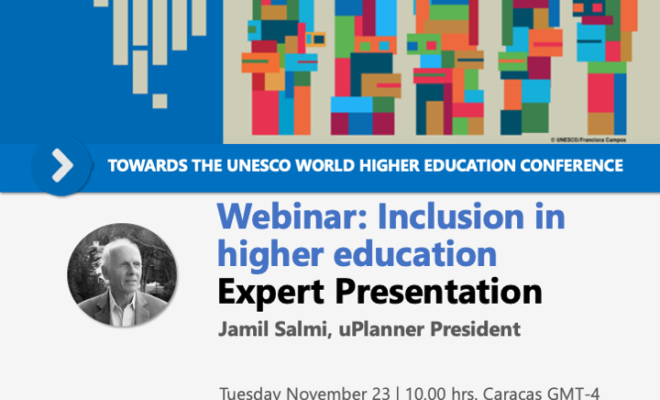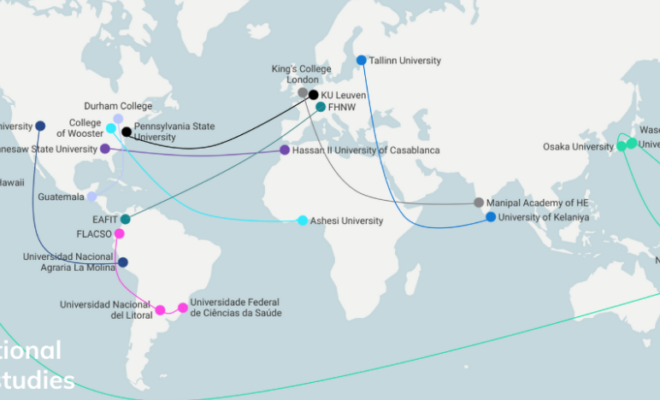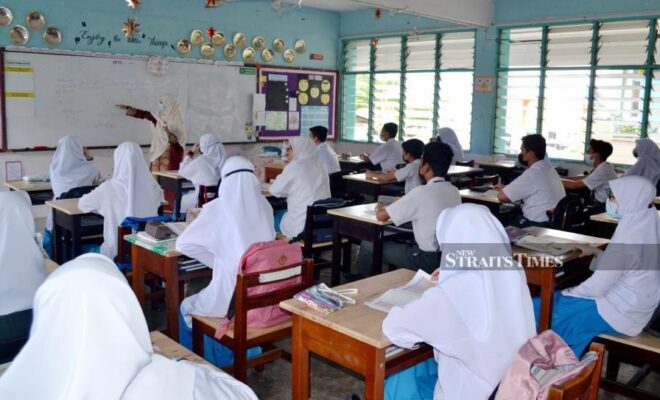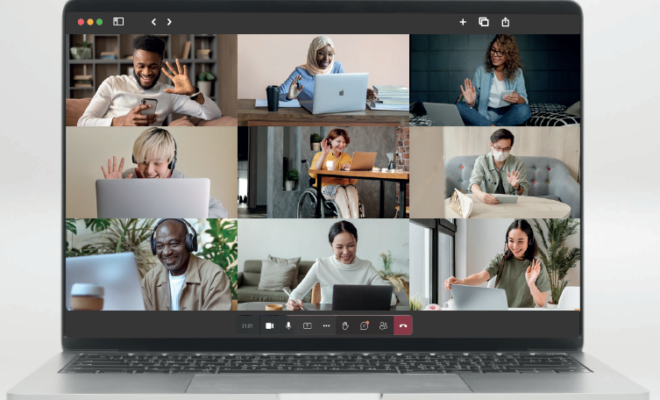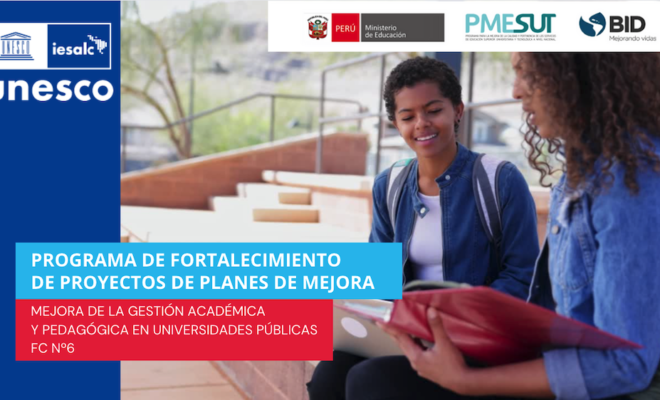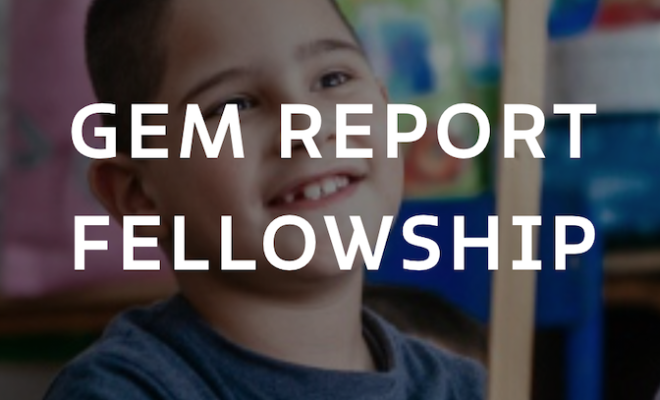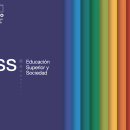Launching of the report on opportunities and challenges of virtual student mobility
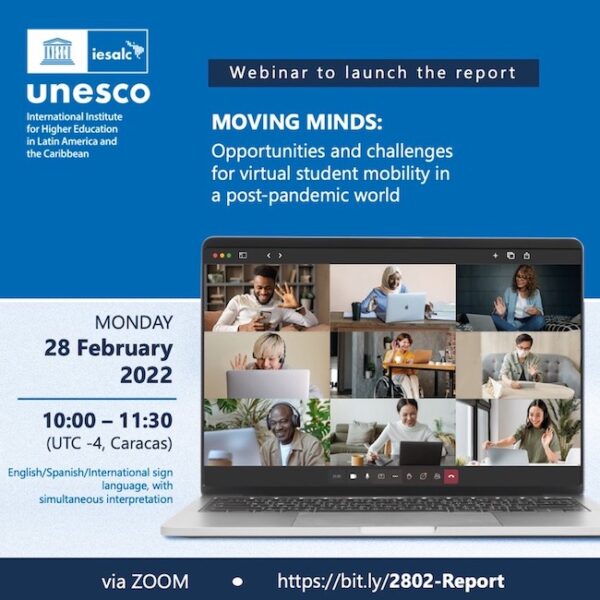
The UNESCO International Institute for Higher Education in Latin America and the Caribbean (IESALC) launches a major new report “Moving minds: Opportunities and challenges for virtual student mobility in a post-pandemic world”, which addresses how the incredible creativity and innovation shown in higher education during the Covid-19 can be harnessed and further developed so that student mobility becomes possible, not only physically but through virtual modalities.
The aim is to ensure that students can continue to benefit from intercultural exchanges through the use of technology. These new forms of learning would make student mobility possible not only face-to-face but also virtually.
The report is based on 14 case studies of virtual student mobility that have been implemented by 73 higher education institutions (HEIs) and through partnerships in 38 countries in all regions of the world. Based on the case studies, recommendations are offered to incorporate virtual student mobility as an additional form of student mobility, which can play a key role in reshaping the internationalization of higher education in the post-pandemic landscape.
These practical recommendations are addressed to the different groups for whom virtual student mobility should be an important consideration: students themselves; those who develop and implement virtual student mobility (faculty members, staff of international relations offices); decision-makers (HEI leaders, HE alliances, governments); and funders (governments, NGOs).
The online event to launch the report counts with the participation of the Research and Analysis team, UNESCO IESALC composed of Emma Sabzalieva, Takudzwa Mutize and Clarisa Yerovi, accompanied by its director, Francesc Pedró.
Also presenting case studies of partnerships for virtual mobility programs are Gabriela Gerón Piñón, Director of Partnerships, Innovation and Communication, Hemispheric & Global Affairs; Janine Knight-Grofe, Manager, International Education, Durham College, Canada; Phuong Nguyen, International Relations Coordination, Hanoi University of Science and Technology, Vietnam; Neelakshi C. Premawardhena, Director, Center for International Affairs, University of Kelaniya, Sri Lanka and Miguel Rodriguez, Director of Internationalization, Universidad Nacional del Litoral, Argentina.
Date and time: Monday, February 28, 2022, 10:00 – 11:30 (UTC -4, Caracas)
Format: Zoom webinar.
Open to all; prior registration is required:
https://unesco-org.zoom.us/webinar/register/WN_Oc4O7S_UTWWh4m-ptqqHxA
Languages: English/Spanish/International sign language, with simultaneous interpretation.
RELATED ITEMS
